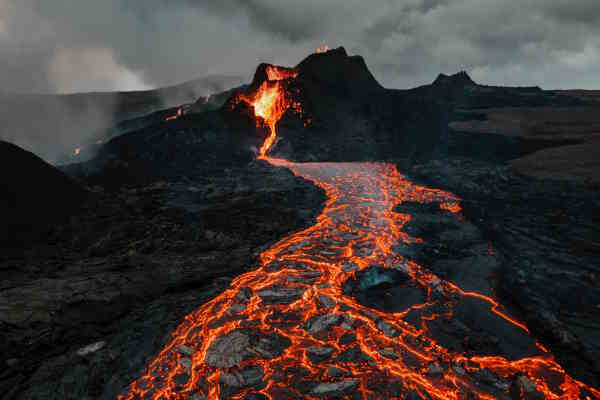Reality
By Glen Beasley
Many years ago at the age of fifteen, five first year students went AWOL from Queensland Agricultural College to the nearby township of Gatton to see the latest Elvis film, entitled “Live a Little, Love a Little” which featured Elvis’s latest song, “The Edge of Reality”. For Elvis, dressed in a vivid fluoro suit, surrounded by beautiful girls cavorting around the stage, reality probably centred around the squillions of dollars he was making out of pop culture rather than ‘the universal struggle for self’:
“Oh I can hear strange voices echo
Laughing with mockery
The borderline of doom I’m facing
The edge of reality.”
Doom for the five students was the reality of expulsion if we were caught AWOL.
In SOFiA when we commit to free and open conversation on issues of purpose, faith and meaning, aren’t we close to exploring what reality is? It is argued that much of our personal sense of reality – how the world works and our place in it – is shaped by information we take on as children. Information taken on from our parents and other authority figures often goes unchallenged, and has a lifetime hold on us. We can easily succumb to the idea that our own experience of life is universal. It has been suggested that our personal experience of life makes up maybe .000000001% of what’s happened in the world, but maybe 80% of how we think the world works.
Thinking about how we evolved as a species can help to inform our sense of reality. Yuval Harari’s book Sapiens continues to keep the Chinchilla SOFiA group amused, with an argument on every page. Christopher Packham’s ‘Earth’ series recently screened on ABC TV is a breathtaking example of how our partial understandings of the origin of our world can be challenged and informed by science. Looking at the origin of our world and the development of our species surely must contribute to our perception of what constitutes reality.
In his beautifully presented episode entitled ‘Atmosphere’, Christopher Packham describes how, four billion years ago, prior to the formation of the atmosphere, earth was a mass of stark, brutal, searing hot rock, with a jet black sky, being pummelled by asteroids and meteorites. Meteorites and volcanoes released gases – essential ingredients for our atmosphere. Methane and CO2 formed an orange hue – a protective shield from space. But there was no rain. Water vapour released by volcanoes never reached the surface of the earth because of the extreme heat. This was the status quo for ten million years until a more favourable temperature produced storms that would last for centuries, gradually cooling and transforming the planet.
In what was the most significant event in world history, Cyanobacteria, the first forms of life, emerged, possibly in waterholes. Life on earth was stuck at this point with high arsenic levels limiting the number of micro-organisms, an acidic green ocean, black-brown land, and an atmosphere in turmoil. A shift in the earth’s tectonic plates led to wind taking dust into the earth’s atmosphere, resulting in chaotic rain with deadly gases. Our ancestors lived underwater, stuck there for a further billion years until the next big breakthrough when plants developed the ability to capture the sun’s rays and store energy as glucose, using this energy to grow and reproduce. Photosynthesis released the awesome power of life on earth. Thus, Cyanobacteria (the slime we know as blue green algae) changed the Earth’s history forever.
The documentary goes on to describe how, 28 billion years ago, the combination of iron, oxygen and water produced rust on the ocean floor, turning the ocean red. Iron flushed oxygen from our oceans and transformed our atmosphere. The relationship between ocean, land and atmosphere was changed forever.
2.4 billion years ago, oxygen attacked the earth. Rocks containing iron and aluminium rusted, producing dust. The world was torn apart by its own atmosphere and turned brilliant red through oxidation.
Oxygen reacted with iron and other minerals creating colour and diversity which would allow life to flourish as it never could before. The sky becomes oxygen rich and turns a brilliant blue – a blue line in a 4 million year dance between atmosphere and life. Our world becomes a beautiful blue bubble floating in the darkness of space.
I wonder how any of us could not be moved by an overpowering sense of awe and wonder on seeing documentaries such as this. I find myself contemplating the woeful inadequacies of the traditional Christian story of creation. Recently, I loaned a friend a copy of Sapiens. I knew it would stretch him, but I believed he was big enough and ugly enough to handle it. On returning the book, he declared that he had never read anything so ridiculous in his whole life. “After all,” he said, ”we all know that the world was created only six thousand years ago.” It left me thinking that this is not unlike what Nietzsche describes as the delusions that we need to surrender if humankind is ever to come of age. It’s interesting that my friends’ wife went and bought her own copy of Sapiens.
I say long live the small groups of SOFiA and others like them. We all struggle with the big questions of purpose, meaning and reality, but groups like ours can empower others to live with the uncertainty of not knowing, rather than an impoverished certainty of what reality is.
Disclaimer: views represented in SOFiA articles are entirely the view of the respective authors and in no way represent an official SOFiA position. They are intended to stimulate thought, rather than present a final word on any topic.
Photo by Tetiana Grypachevska on Unsplash


